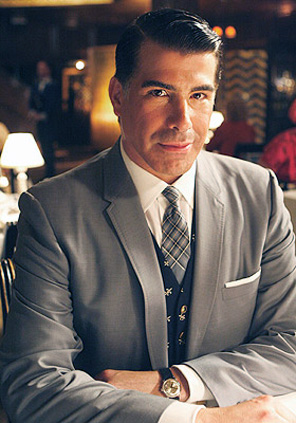The lesson of Tiger Woods is that the best way to become a superstar is to start young and get in those 10,000 hours as quickly as possible. That’s why Earl put a club in the hands of a toddler, and why Mozart was composing music before most of us can do arithmetic.
However, a series of recent studies by psychologists at Queen’s University adds an important wrinkle to the Tiger Woods parable. The scientists began by analyzing the birthplace of more than 2,000 athletes in a variety of professional sports, such as the NHL, NBA, and the PGA. This is when they discovered something peculiar: the percent of professional athletes who came from cities of fewer than a half million people was far higher than expected. While approximately 52 percent of the United States population resides in metropolitan areas with more than 500,000 people, such cities only produce 13% of the players in the NHL, 29% of the players in the NBA, 15%of the players in MLB, and 13% of players in the PGA.
This conclusion is consistent with what I've noticed watching Georgia games over the years. Roughly half of the state's population lives in Metro Atlanta. Moreover, the metro area is significantly richer than the rest of the state. Nevertheless, Georgia always seems to have a majority of players from the rural parts of the state. By my half-assed count, 14 of Georgia's 22 projected starters come from outside of major metro areas (defined in the article as a city of 500,000 or more).
Here are the explanations proffered by Jonah Lehrer:
I can think of several different explanations for this effect, none of which are mutually exclusive. Perhaps kids in small towns are less likely to get distracted by gangs, drugs, etc. Perhaps athletes outside of big cities go to better schools, and thus receive more attention from their high school coaches. Perhaps they have more access to playing fields. Perhaps they have a better peer group. The scientists summarize this line of reasoning in a recent paper: “These small communities may offer more psychosocially supportive environments that are more intimate. In particular, sport programs in smaller communities may offer more opportunities for relationship development with coaches, parents, and peers, a greater sense of belonging, and a better integration of the program within the community.”
But there’s another possible explanation for this effect, which was nicely summarized by Sian Beilock, a psychologist at the University of Chicago and author of the forthcoming Choke. She proposes that an important advantage of small towns is that they’re actually less competitive, thus allowing kids to sample and explore many different sports.
Based on my anecdotal experience, I don't buy the notion that small towns produce more players because there is less pressure. To the contrary, I suspect that small towns produce lots of top athletes because players in those towns grow up in an environment that mimics the pressure they'll face in college and then in the pros. Growing up in Macon, there were no pro sports teams, so high school sports dominated the local news. High school football was a very big deal. In Atlanta, high school sports are pushed to the back burner because we have four professional teams and the city also functions as a major college football market. A star high school player in Macon (or moreso in a real small town) is more likely to face pressure in the form of the entire town cheering or booing his performance. A football player in Atlanta is likely to experience pressure from family and friends, but not from the local media and the random guy on the street. Or have I been watching too many episodes of Friday Night Lights?




